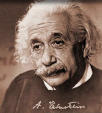HEART n. An automatic ordsprog
 |
 |
 |
 |
 |
 |
 |
 |
|  |
 |
Antal ordsprog er 2101330
varav 2122549 på nordiska
Ordsprog (2101330 st) Søg
Kategorier (3944 st) Søg
Kilder (201411 st) Søg
Billeder (4592 st)
Født (10498 st)
Døde (3319 st)
Datoer (9520 st)
Lande (27300 st)
Idiom (4439 st)
Lengde
Topplistor (6 st)
Ordspråksmusik (20 st)
Statistik
Denna sidan visar ordspråk som liknar "HEART, n. An automatic, muscular blood-pump. Figuratively, this useful organ is said to be the esat of emotions and sentiments --a very pretty fancy which, however, is nothing but a survival of a once universal belief. It is now known that the sentiments and emotions reside in the stomach, being evolved from food by chemical action of the gastric fluid. The exact process by which a beefsteak becomes a feeling --tender or not, according to the age of the animal from which it was cut; the successive stages of elaboration through which a caviar sandwich is transmuted to a quaint fancy and reappears as a pungent epigram; the marvelous functional methods of converting a hard-boiled egg into religious contrition, or a cream-puff into a sigh of sensibility --these things have been patiently ascertained by M. Pasteur, and by him expounded with convincing lucidity. (See, also, my monograph, _The Essential Identity of the Spiritual Affections and Certain Intestinal Gases Freed in Digestion_ --4to, 687 pp.) In a scientific work entitled, I believe, _Delectatio Demonorum_ (John Camden Hotton, London, 1873) this view of the sentiments receives a striking illustration; and for further light consult Professor Dam's famous treatise on _Love as a Product of Alimentary Maceration_.".
varav 2122549 på nordiska
Ordsprog (2101330 st) Søg
Kategorier (3944 st) Søg
Kilder (201411 st) Søg
Billeder (4592 st)
Født (10498 st)
Døde (3319 st)
Datoer (9520 st)
Lande (27300 st)
Idiom (4439 st)
Lengde
Topplistor (6 st)
Ordspråksmusik (20 st)
Statistik
Denna sidan visar ordspråk som liknar "HEART, n. An automatic, muscular blood-pump. Figuratively, this useful organ is said to be the esat of emotions and sentiments --a very pretty fancy which, however, is nothing but a survival of a once universal belief. It is now known that the sentiments and emotions reside in the stomach, being evolved from food by chemical action of the gastric fluid. The exact process by which a beefsteak becomes a feeling --tender or not, according to the age of the animal from which it was cut; the successive stages of elaboration through which a caviar sandwich is transmuted to a quaint fancy and reappears as a pungent epigram; the marvelous functional methods of converting a hard-boiled egg into religious contrition, or a cream-puff into a sigh of sensibility --these things have been patiently ascertained by M. Pasteur, and by him expounded with convincing lucidity. (See, also, my monograph, _The Essential Identity of the Spiritual Affections and Certain Intestinal Gases Freed in Digestion_ --4to, 687 pp.) In a scientific work entitled, I believe, _Delectatio Demonorum_ (John Camden Hotton, London, 1873) this view of the sentiments receives a striking illustration; and for further light consult Professor Dam's famous treatise on _Love as a Product of Alimentary Maceration_.".